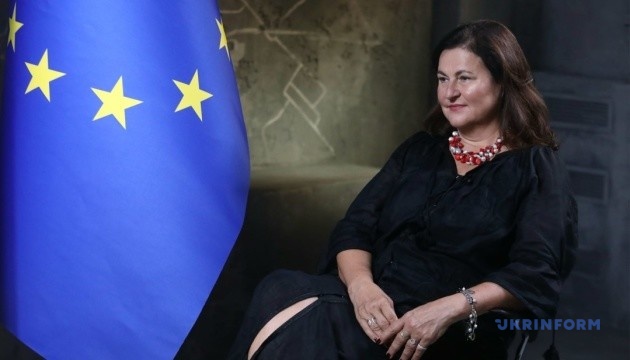
Decentralization reform proved its worth when Russia invaded - EU ambassador
The resilience shown by communities in the areas initially affected by Russia’s full-scale invasion was including due to the success of the decentralization reform that Ukraine had undertaken before the big war started.
That’s according to the EU Ambassador to Ukraine, Katarína Mathernová, who spoke with Ukrinform ahead of the publication of the EU Enlargement Report 2024.
“It was with Russia’s full-scale invasion when decentralization has very much proven its value and worth as the communities were able to self-organize and stand resilient in the face of the onslaught,” the ambassador believes.
“Whether in peacetime, or in a time of war, the decentralized bodies are extremely important and we will keep supporting decentralization, both politically – as you will see in our assessments – and financially, through our EU Lead project” said Mathernová.
From the EU perspective, decentralization “has been one of the most transformational reforms the country has undertaken”.
At the same time, she admitted that certain tensions exist between decentralization and “the need to hold the country together during martial law, which is almost natural amid war as the government must maintain strong centralized control over over a multitude of issues”.
“So I understand that there needs to be a strong central steer under martial law but that doesn't mean that, as soon as the condition allow, we shouldn’t be back where we were, and the EU very much watches it, and not only not only Brussels institutions, but member states as well,” concluded the ambassador.
As Ukrinform reported earlier, amid the ongoing Russian attacks targeting Ukraine’s energy system, efforts are being made to decentralize energy generation to make communities more resilient as winter approaches.
Ukrainian state-owned banks are now ready to provide loans for local communities planning to install power generation facilities, running on either gas or renewables.
